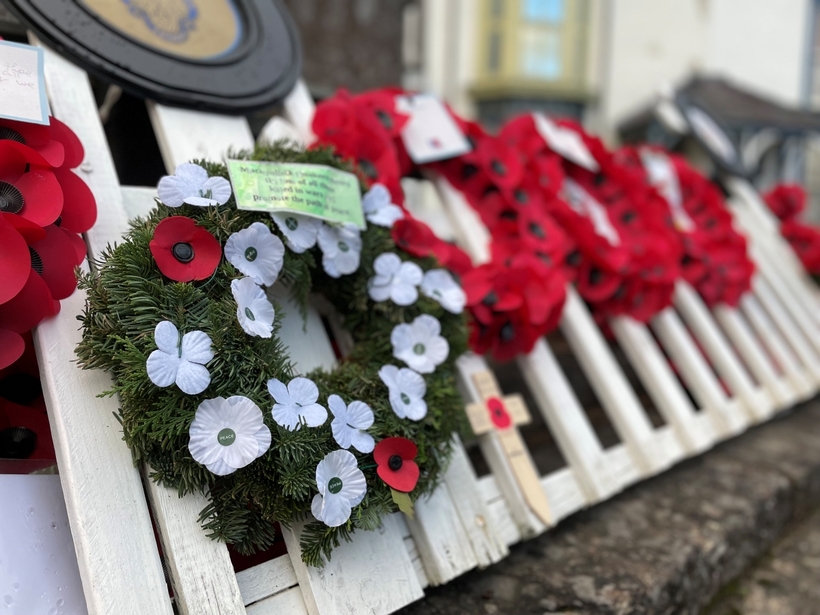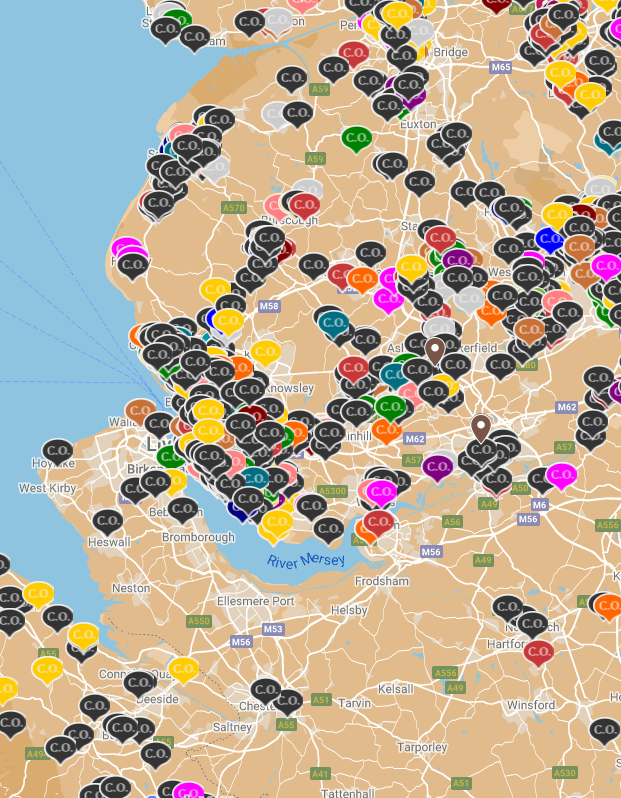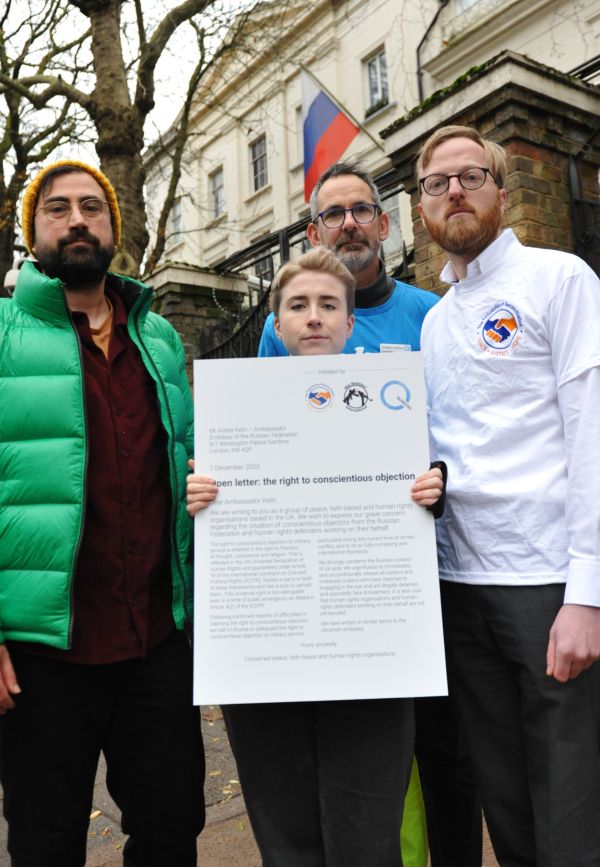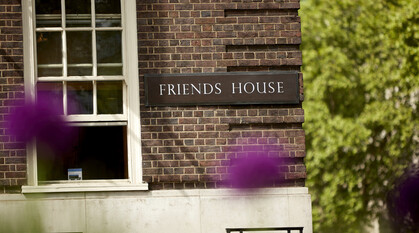The ones who are forgotten on Remembrance Day
Dixe Wills argues that hearing the stories of conscientious objectors – past and present – helps us to refocus Remembrance on the horrors of war and the need for peace.

It's said that truth is the first victim of war. If that's so, then close on truth's heels is a second victim: the right not to take part in it.
That was certainly the case during the Second World War for Quaker conscientious objector (CO) Allan Evens from Golders Green in London. He was ordered to report for non-combat service in 1941, but evidently saw this as contributing to the war effort and so refused. As a result, he spent three months in Gloucester Prison. It's likely that this was merely the first of several sentences Evens served, since he was in prison as the war ended and not released until several months afterwards.
Allan Evens is just one of over 11,000 British WWII COs – including just over a thousand Friends – whose records Quaker Barry Mills has unearthed in six years of research. Most tribunal records from that time have been destroyed, so Barry has been compiling a database of these otherwise forgotten men and women by painstakingly trawling contemporary newspapers and editions of The Friend, and appealing for information from descendants of objectors. He's still got quite a task ahead: there are believed to have been roughly 67,000 British WWII conscientious objectors, including around 900 women (compared with 16,000 objectors in WWI, the conflict most associated with the refusal to fight). About 6000 are thought to have been imprisoned.

But this coming Remembrance Day it's doubtful there'll be any mention of COs at most of the events held up and down the country. There may even be a sense that they have no place in such commemorations. And that may be one of the reasons Quakers have long been uneasy about the framing of the day.
In 1919, in the weeks before the very first Remembrance Day (then known as Armistice Day), the Quaker Peace Committee wrote a letter to The Friend. It reads, “There will no doubt be celebrations of the event. In so far as there are rejoicings over the cessation of bloodshed all our members will unite wholeheartedly...If meetings are held, there will be an opportunity for urging that the occasion may be one of dedication to the cause of international peace."
Sadly, this hope has not come to pass. Along with the commemoration of British armed forces personnel who have lost their lives in war, the underlying message of mainstream Remembrance is a tacit assertion that war is inevitable and that to lose one's life fighting brings glory. While the Peace Pledge Union work hard to keep the original message of Remembrance – 'never again' – alive with the white poppy, the dominant narrative leaves little room to interrogate the failure that war represents or how we could build peace.
Of course, one of the ways of building such peace is through refusing to fight. And conscientious objection isn't merely a phenomenon restricted to the two world wars.
In Europe, the shadow of the Ukraine war continues to creep across the continent, manifesting itself in calls for the return of conscription for both men and women in several countries including the UK. In Lithuania, the 'alternative service' offered to objectors is merely unarmed military service – a policy that looks set to be instituted in Sweden, Latvia and Switzerland. In France, inscription into a training programme that steers young people into the military may be made compulsory.

As for the belligerents in the war, while both countries maintain the right to conscientious objection on paper, there is no provision for it in practice. In Ukraine, CO, peace campaigner and Friend Yurii Sheliazhenko has been charged with 'justification of Russian aggression' simply for calling for peace. He faces up to five years' imprisonment if found guilty. Meanwhile, tens of thousands of Russians and Ukrainians have fled to third countries such as Georgia and Armenia in a bid to escape participating in the war.
In Israel, teenagers Tal Mitnick, Sofia Orr and Ben Arad made public declarations of their refusal to take up arms last year and served months in prison before their right to conscientious objection was recognised. They were followed by other teenage 'refuseniks' who were in turn imprisoned. These COs form the crest of a wave of Israeli women and men who do not want to fight in Gaza and the West Bank. For instance, this month, 130 soldiers signed an open letter declaring that they would stop serving with the Israel Defense Forces unless the government signed a hostage release deal (which would necessarily have to form part of a ceasefire agreement).
But how can Friends respond besides holding the world's COs in the Light? Well, a good start would be contacting us for information about how you can support Quaker work with Russian and Ukrainian deserters and COs. You could also discover more about organisations that support COs and campaign for the right to refuse military service to be respected such as War Resisters' International, the Refuser Solidarity Network, Mesarvot, and New Profile.
So, this Remembrance Day, let us remember not just the those who have lost their lives in war, but also those who have faced – and still face – persecution, social isolation, violence and imprisonment for refusing to take part in it.
![close up of Holocaust Memorial Garden stone, Hyde Park, London. Inscription reads: Holocaust Memorial Garden ה'כךנ 'נא הלא לע 'נ'ע ךךה ם'מ 'נלכ 'מע תב ךנש לט [אבה] For these I weep streams of tears flow from my eyes because of the destruction of my people. (Lamentations)](/media/W1siZiIsIjIwMTgvMDEvMjYvMTEvNTEvNDEvYmNmZTZmM2QtZjJkNS00MjEzLTk5ODctNTk5ZjBkOGJhMTIwL1JhY2tNdWx0aXBhcnQyMDE4MDEyNi05NzE1LTFyN3F2ZWcuanBnIl0sWyJwIiwidGh1bWIiLCI0MTl4MjMzIyJdXQ)

